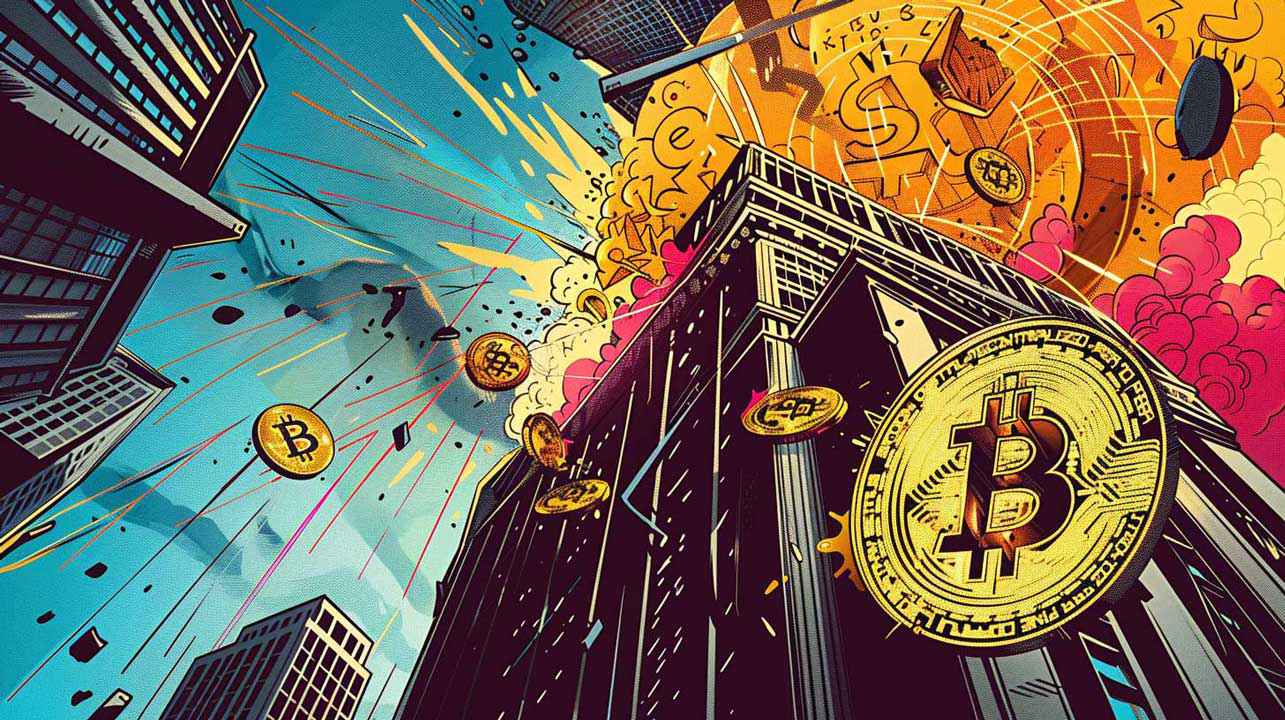Behind the oddly insincere "apology" is a shout from news practitioners
Rather than an apology letter, this is more like a kind journalist's counterattack against injustice.
Author: Babywhale, Techub News
The "apology letter" published by the Financial Times yesterday, featuring a meme on its cover, initially led one to believe that the Financial Times was reflecting on its previous negative coverage of Crypto as Bitcoin officially broke through $100,000. However, a deeper reading of this sarcastic short article reveals that rather than an apology, it is more of a kind-hearted rebuttal from journalists against injustice.
In the first paragraph of the apology letter, the Financial Times states:
Regular readers of FT Alphaville may get the impression that its authors, both current and past, are skeptical about cryptocurrencies, especially Bitcoin. This is correct.
This clearly indicates their stance: a skeptical attitude towards cryptocurrencies, especially Bitcoin, has never changed from $10 to $100,000, and they still believe "this is correct."
The content of FTAV from June 2011 to the present may convey the following viewpoint: Bitcoin is a negative-sum game, its protocol is designed very "smartly," theoretically usable for accounting, but inefficient as a traditional means of transaction, and there are issues as a store of value. Our posts may have also promoted the idea that Bitcoin's price is a metric that can be arbitrarily speculated upon, unrelated to any utility that tokens might have, because replicating the utility provided by that token is too easy, thus any intrinsic value comes from the sunk costs of infrastructure and intangible assets, such as regulatory tacit approval, interconnection with the mainstream financial system (once considered the "antidote"), and the allure of "being the first" in terms of "collectibles."
We support every piece of content.
Let's set aside the correctness of FT's viewpoint for now and look at the most interesting last paragraph:
If at any time in the past 14 years you chose not to purchase goods that were "paper price" rising based on our reporting, we sincerely apologize. The rise of "paper prices" is a good thing. If you misunderstood our cynical attitude towards cryptocurrencies as support for traditional finance, we sincerely apologize, as we also despise such behavior.
If you have even a slight understanding of "irony," you would know that this "apology letter" from the FT is not a real apology, nor is it directed at cryptocurrencies themselves; its true target is the predatory "finance."
Is finance good or bad? Different people may have different answers. As part of the current rules of human society, finance is indeed an indispensable component of economic development. In a currency-centric system, lending, insurance, and everything else provide the momentum and protection for economic growth.
On the other hand, all of this has also become a tool for a small number of people to control the majority. Bankers have created countless high-value "goods" to facilitate the flow of funds, such as housing. They have created exchanges for stocks, futures, commodities, and precious metals, attracting countless people and funneling the value generated through hard work into a bottomless pit of zero-sum games, luring "retail investors"—those who have no idea what they are facing—with stories of overnight wealth.
Is FT's description of cryptocurrencies incorrect? The fact is, every word is true: negative-sum games, inefficient trading systems, lack of value storage logic, manipulated prices, and lack of practicality.
But is it only Crypto that is like this? Clearly not. The classic line from "The Wolf of Wall Street" tells us that stocks are pretty much the same.
It's fairy dust. It doesn't exist. It's never landed. It is no matter. It's not on the elemental chart. It's not fucking real.
Essentially, this is an almost explicit critique of the dark side of finance by the Financial Times. Ironically, they themselves are called the "Financial" Times.
Perhaps due to job requirements or the objective environment, the journalists and editors at the Financial Times need to write and publish news or commentary that they may not want to publish. However, taking money from others and providing disaster relief is unavoidable. At least through this article, we see that there are still some among them who hold onto basic conscience.
They know that even if blockchain and Web3 are the future, the stories of ruin and family breakdown brought about by the speculation of cryptocurrencies will not stop.
Why must the development of an emerging industry be bloody? Why can't we learn some lessons from past experiences? Unfortunately, due to human nature, they can only try to make some noise, regardless of whether it is seen, whether those who see it understand, and regardless of whether those who understand truly act on it.
Gary Gensler, the current chairman of the U.S. Securities and Exchange Commission, warned investors about the enormous risks of cryptocurrencies and advised caution just before the approval of the Bitcoin spot ETF, which many in the Web3 industry took as a laughingstock. However, I believe that was a desperate elegy. He may have the authority to help the market eliminate some fraudulent risks, but he cannot stop the footsteps of "shadow controllers" like BlackRock from shattering everything.
As a long-time industry practitioner, I firmly believe that blockchain will change the world, just as the stock market has brought endless wealth to brave entrepreneurs who change the world. The emergence of blockchain and tokens will ultimately reward those who dare to be the first to take the plunge. I believe that existence is reasonable, but I also believe that being reasonable does not necessarily mean being correct.
Amazon founder Jeff Bezos once said that humans are not a species that likes the truth. I have found that in the Crypto field, this self-deception phenomenon is particularly evident; no one knows what tokens really are or what they are useful for, but since they can be speculated upon, whether they are cats or dogs seems less important.
Microstrategy's stock price peaked last during the height of the 2000 internet bubble, and 24 years later, it broke through the stock price high from nearly a quarter of a century ago thanks to its hundreds of billions of dollars in Bitcoin holdings, illustrating the madness of the internet bubble back then. Now, we have proven that the actual utility of the internet has indeed surpassed the boasts made back then; what about blockchain?
What we need now are people who explore how Web3 can change the world; we do not need people who boast that blockchain can change the world. Creating ten thousand infrastructures, ten thousand DEXs, ten thousand lending protocols, ten thousand re-staking protocols, and ten thousand Layer 2s will only inflate the bubble infinitely.
The bubble will eventually burst; everyone knows that, but everyone feels they are not the last one to take the baton and believes they can escape before that. This stubborn confidence is precisely why the author of this apology letter dares to give a warning.
Disclaimer: The content of this article solely reflects the author's opinion and does not represent the platform in any capacity. This article is not intended to serve as a reference for making investment decisions.
You may also like
Bitcoin Nears $85K Amid Trade Optimism and Fed Hints at Rate Cuts

Trade wars push blockchain into supply chain solutions

Corporations hold $57 billion in Bitcoin

Trump administration walks back tariff ‘exemption’ on electronics
Trump says he’s “flexible” on electronic tariffs, and that more developments are “coming up”
